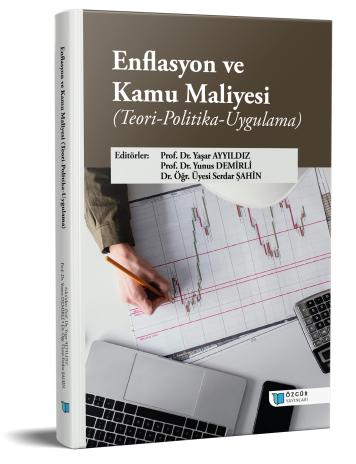
Enflasyonist Dönemlerde Vergi Yargısında Uygulanan Parasal Sınırların Üst Mahkemelere Erişim Hakkı Engeli Olarak Anayasa Mahkemesi Kararlarına Yansıması
Şu kitabın bölümü:
Ayyıldız,
Y.
&
Demirli,
Y.
&
Şahin,
S.
(eds.)
2024.
Enflasyon ve Kamu Maliyesi (Teori-Politika-Uygulama).
Özet
Vergi yargısında “istinaf” ve “temyiz” kanun yolu başvuruları için “parasal sınırlar” öngörülmüştür. Bunların, enflasyona karşı her yıl güncellenmesi için “yeniden değerleme oranına” dayalı “otomatik endeksleme sistemi” getirilmiş olup ülkemizde yaklaşık dokuz yıldan beri uygulanmaktadır. Özellikle son yıllardaki yüksek enflasyonist ortam nedeniyle, parasal sınırların son birkaç yılda yüksek tutarlara ulaştığı söylenebilir. Bu durumun, parasal tutar anlamında önemli sayılabilecek bazı uyuşmazlıkların, kanun yollarına götürülmesine engel olduğu anlaşılmaktadır.
Anayasa Mahkemesi (AYM), iki ayrı kararı ile, konu hakkında itiraz yoluyla önüne gelen davalar sonucunda, İdari Yargılama Usulü Kanunu’nun (İYUK) “temyiz” ve “istinaf parasal sınırları” ile “parasal sınırların güncellenmesini” öngören düzenleme olmak üzere, toplam üç hükmünü iptal etmiştir. İptal gerekçeleri; Anayasa'nın 13 ve 36’ıncı maddeleri çerçevesinde, “mahkemeye erişim hakkı”, “hükmün denetlenmesini talep etme hakkı”, “ölçülülük”, “öngörülebilirlik”, “kanunilik”, “hukuki belirlilik” ve “eşitlik” ilkelerine aykırılık şeklinde sıralanmıştır.
Çalışmanın amacı; vergi yargısında kanun yollarına başvurular için öngörülen parasal sınırlar ile parasal sınırların güncellenmesi hususlarının, özelikle yüksek enflasyonist dönemlerde, üst mahkemelere erişim hakkı engeli oluşturup oluşturmadığının araştırılması olarak belirlenmiştir. Çalışmanın yöntemi; iptal kararları örneğinde, parasal sınırların güncellenmesinde kullanılan “otomatik endeksleme sistemi” ile parasal sınırlara ilişkin yıllar itibariyle “güncellenen tutarların” incelenmesi olarak belirlenmiştir.
Çalışma sonucunda; hem güncelleme tekniğinden hem de kanuni düzenlemelerdeki eksikliklerden kaynaklanan, parasal sınırlardaki makasın zamanla giderek açılmaya başlamış olması ve parasal sınırların uygulanacağı tarihlerin yasal olarak belirlenmemiş olması şeklinde, iki temel sorunun gün yüzüne çıktığı tespit edilmiştir. Sorunlardan ikincisi, iptal kararları nedeniyle yeni kanuni düzenleme yapılarak düzeltilmişse de, halihazırda devam eden diğer sorunun, uzun vadede parasal sınırların işlevlerini yitirmesine sebep olabileceği ve ileride kanuni bir düzenleme ihtiyacı ortaya çıkartabileceği öngörülmüştür.

